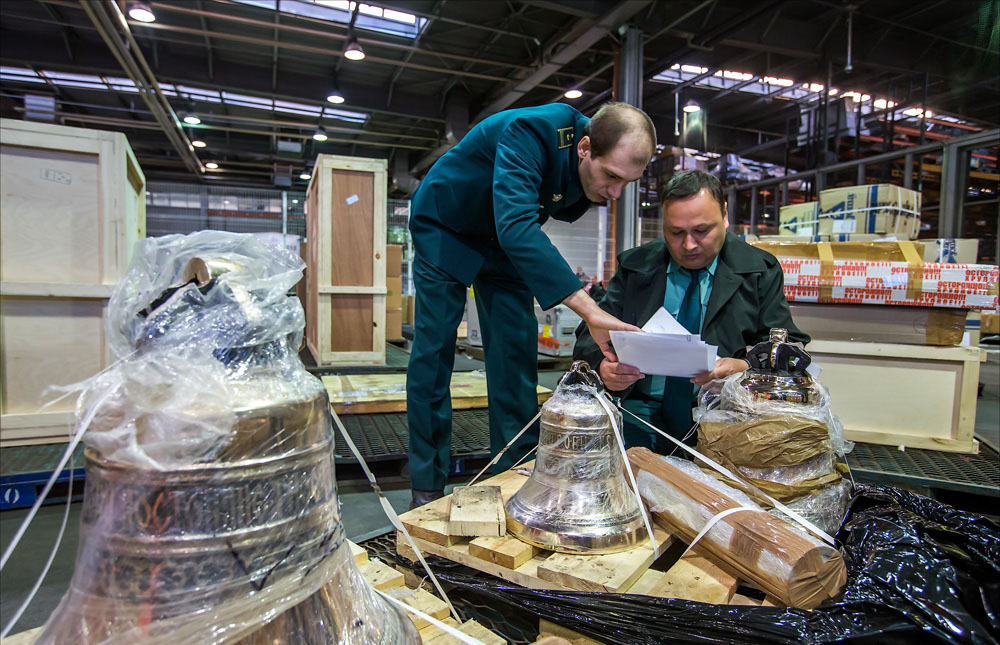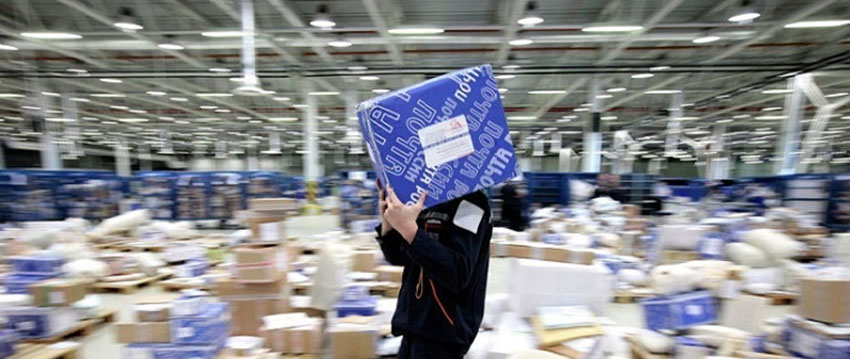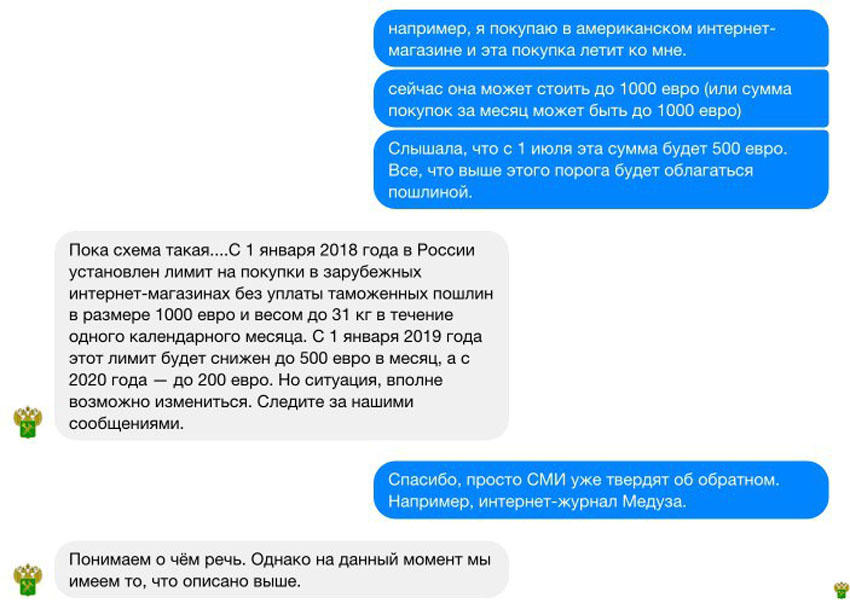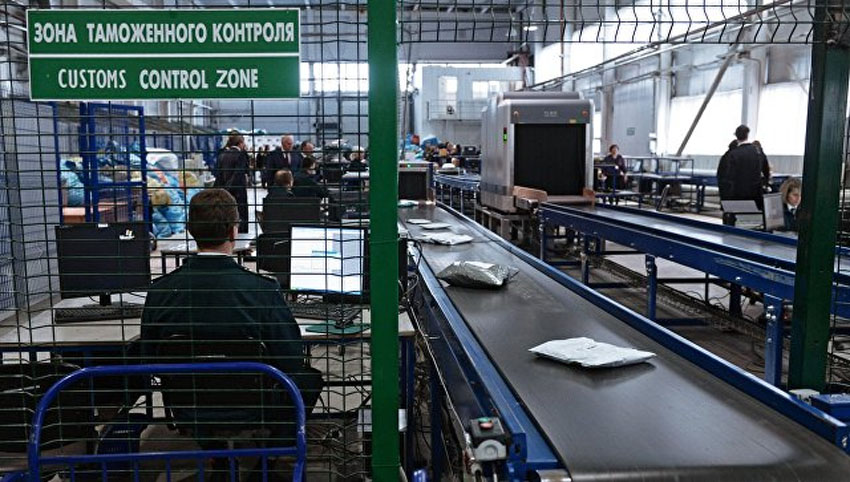No one knows what will happen to online shopping from July 1

It is time for miracles. While the country is watching the World Cup, the government just recently prepared bills for an imminent increase in VAT and retirement age. But for our small company, even more frightening is another law - on restricting foreign online purchases of Russians. One that should take effect in two weeks, the first of July. Which in one fell swoop will reduce the duty-free shopping threshold by half, to € 500 per month. Previously, they wanted to introduce this limit in 2019, now all of a sudden - they urgently accelerated for six months ... Or not?
The ability of Russians to make online purchases in foreign stores has long been sitting like a bone across the throat of some officials. In 2017, the share of foreign online commerce in Russia amounted to almost 40% (420 billion rubles). According to estimates of the FCS, if you reduce the duty-free threshold, this will add 25 billion rubles a year to the state budget. Plus - Russian Internet commerce will become more competitive.
A similar opinion is shared by our favorite organization, AKIT. She has united all the major domestic representatives of online retailers, and since 2012 she has been diligently lobbying for “equal conditions” in the market. The long-term goal - to make it so that buying goods in Russian online stores has become more profitable than in Chinese or American. To achieve this, according to representatives of the organization, is possible only through the introduction of additional taxes and fees. For example, the duty is 30% when a certain limit is exceeded.
Experts say that such a duty on overseas purchases will lead to higher prices in Russian stores - on average, by 15% for the same goods. In the absence of fierce competition, this is almost inevitable. And the major players in domestic retail have already proved their ability to negotiate with each other - when ACIT was formed.

Only yesterday AKIT achieved another success . The Federal Customs Service, with its submission, sent to the Ministry of Finance a proposal to completely reset the duty-free threshold - that is, to start taxing all purchases at foreign online stores, regardless of their price. This is not even in Belarus. Fortunately, this idea, as promised, will begin to act no earlier than 2020. But that comes into force very soon (and also with the filing of the ACIT with the support of the FCS) - reducing the threshold to € 500 to at least cut off the most expensive purchases.
Here, for example, Medusa transmits yesterday : “The threshold for duty-free importation of goods from online stores will fall from July 1 - from 1,000 to 500 euros per month per person.” With reference to the head of the department of customs and tax policy of the Ministry of Finance Alexei Sazanov. Sazanov claims that he is on a short foot with the Federal Customs Service of Russia, and, naturally, heard about their proposal to impose a duty on all goods. But says this is slightly premature. “We'll see, then we’ll move on, getting feedback,” added Sazanov, apparently hinting that if they don’t particularly criticize the reduction to € 500, then you can go further, why not.
All the media, quoting Sazanov and other officials, say that from July 1, the limit will be € 500. We also wrote about this in April. This idea was long overdue, but first, according to the plan, the fall should have started in 2019. A couple of months ago, the Ministry of Finance pushed the law to speed up the whole thing by six months. And now, for users, it seems, everything is obvious. From July 1, if you take more than € 500 in goods, you pay customs a 30% duty on everything that is “on top”.
I have not heard of such a new rule for the importation of goods only ... the customs of the Russian Federation itself. Here is a screenshot of our correspondence with them today:

"Follow the messages . "
The official representative of the Federal Customs Service says that the decline is still planned only for January 1 of the next year. And about July 1 - do not worry. If nothing “changes” in the “scheme”.
Our brokers are also confused. The last two weeks before the new requirements, about which in our sphere everyone is so worried, but they have no information. Rather, the customs "confirms" that nothing changes. (Although this directly contradicts the words of Sazanov and the draft law enacted). What to say to your customers in this situation is also unclear. We have more than enough purchases with prices ranging from € 500 to € 1000 - these are iPhones, MacBooks, various branded clothes, and even dolls (do not ask). How much will now have to pay for their delivery to Russia? The extra € 30 for delivering things for € 600 is quite a tangible difference (which, of course, AKIT hoped for).
It is clear that each country has its own characteristics. For example, in Germany, Lufthansa workers are on strike every year on schedule, which is why we have disruptions in the delivery of packages, which is very unpleasant. There are no such strikes in Russia. But the work of numerous public services is sometimes worse than any strike. What will be done with our parcels from America more than € 500, which from July 1 will begin to appear at the customs in Sheremetyevo? Apparently, this will depend on each particular customs official standing at the post, and on whose news he reads.
There must be some conclusion that all this is funny. But in fact, for us and for another business that is working in Russia, who does not know what to expect even next month, there is no fun in the situation.
Just a small private example of how qualitatively new laws are implemented in our country. And how fun to live in the middle of all this pool.

We remind you that as long as we deliver parcels, all new customers who visited the code Geektimes, will be $ 7 to the account. The cheapest shipping from the States costs $ 8.99. If you do not want to pay a fee, in these few weeks it is worth ensuring that all goods purchased abroad in the total cost less than € 500 until the situation clears up.
